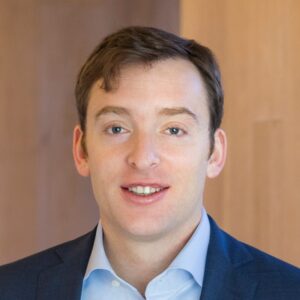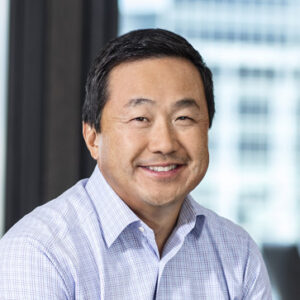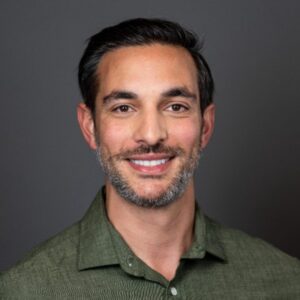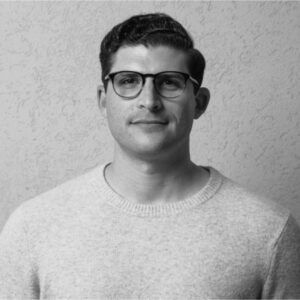Recap of Repeatability 2022
Repeatability 2022, held in November and co-hosted by DTCP and Stereo Capital, was a great success with more than 500 investors and company operators registering for the event. We hosted two keynotes and two panels (on pre and post investment topics). Thanks to our fantastic panelists for their insights - Arvind Purushotham (Citi Ventures), Bilal Chaudhary (Blackstone), Brian Rose (Viking), Chris Lee (Deel), Christine Edmonds (ICONIQ), Eric Andreson (Scale Ventures), Fred Wang (Adams Street), Kiran Hebbar (Alloy), Stephanie Buscemi (Confluent), Sumant Sridharan (Homelight), Tom Tunguz and Vito Brandle (Abnormal Security).
Below we highlighted some interesting data points, perspectives and anecdotes that were discussed. If you’d like to chat about these or related topics, feel free to reach out to Aurin Bhattacharjee or Dmitry Dakhnovsky
Repeatability is a resource for growth stage software and technology founders, operators, investors and advisors. It provides the best thinking on scaling recurring revenue technology businesses.
Financial and Operating Metrics
- A good place to start when evaluating enterprise SaaS/PaaS growth stage businesses are Christine Edmond’s (ICONIQ) benchmarks (based on data from top tier SaaS/PaaS businesses). The Enterprise 5 (with top-tier benchmarks) are ARR growth (doubling in each of the first 2-3 years after crossing $10M ARR), Net $ Retention (120%+ even at scale, with ~95% GDR), Rule of 40, Net Magic Number (>1.0x), and ARR per FTE (growing from ~$100K at $10M ARR to $230K after $100M ARR). For most SaaS companies, ~60-75% of Opex will be personnel related. The burn multiple (FCF/Net New ARR) is also informative. At $10M ARR, companies on average have burn multiples of 1.9x. When they get to $50M ARR, that drops to 1.0x
- Christine also identified resiliency benchmarks - Net New ARR squared (>90%), Rule of 40 (>40%), Y/Y ARR growth (>75%), runway (>2 years) and Operating Income forecast attainment - Q1 is easiest to forecast, even in 2022. Leading indicators of GTM and demand include (with ‘20 and ‘22 medians) Inbound as a % of Pipeline (45%, 40%) and Sales Cycle (10 weeks, 13 weeks). Lagging indicators include % Gross New ARR from New Logos (50%, 53%), Gross ARR Retention (95%, 93%), Renewal Rate (85%, 87%), Win Rate (35%, 35%), Net ARR Retention (120%, 128%), Deal Size/ACV ($93.5K, $103K)
- Tom Tunguz looks at second order metrics such as Total ARR/Total Cumulative spend, Pipeline (total value of potential bookings for the quarter) to Quota Ratio. Many companies are operating with 3x pipeline coverage. And, most SaaS businesses are closing 15% of sales accepted leads. SaaS execs now want smaller sales teams that operate with much higher quota coverage ratios, mainly because sales cycles are lengthening
- Tom surveyed 550 companies and found the top quartile were operating between 14-18 months payback on a gross margin adjusted basis. He thinks shorter sales cycles and land & expand motions are better in this market vs. elephant hunting
Financing Options
- Early growth companies can do a discount to the next round with a cap. That is an elegant solution because it is hard to come up with a valuation for companies that are early in maturity right now. For later stage companies, options include a discount to IPO.
- One key reason companies avoid multiple liquidation preferences is that those make subsequent fundraisings more challenging. If you do a round with a higher liquidation preference, you need to make sure management still has “skin in the game” and is excited. To do that, you can upsize the employee stock option pool
- Some VCs encourage their portfolio companies to have debt facilities in place but not include them as part of their runway. If the company is showing promise and needs time to see return on S&M and R&D investments before the next equity round, debt is helpful
- A consideration is that VCs will not want their capital going to retire debt
- One company recently closed a round and used that balance sheet strength to get no-covenant debt to extend its runway for a short time. If a company takes covenants, the financial modeling must be very accurate
- Most early stage companies are so focused on growth that they don’t have their audits done, finance org built out, books properly organized, etc. These things need to be ready for when the IPO market opens
Board Building
- The size of the boards (e.g. growing from 3-5 to 7-9) changes engagement in and out of quarterly meetings. Apart from the broader board, having good chairs of committees, (e.g. Audit or Compensation), that work well with Finance or People teams is important.
- Many early private companies have boards with VCs and founders. The best boards consistently have a balance of cross-functional operators. If a company is a bit early for non-investor and management board members, look to board advisors.
- Founders must build a robust board pipeline early. Companies should take the approach that diversity drives better thinking - innovation, productivity, etc.
- Going public requires more non-financial reporting metrics, particularly in the EU and US. CEOs can start sharing ESG strategies and reports before going public, including formal data reports.
Go To Market Strategy & Revenue Operations
- New sales rep ramp-ups could be longer than 6-9 months, because sales cycles are longer. SaaS companies are trying to shorten sales cycles by reducing legal touches, utilizing click through, setting pricing and preferred channel partners
- Bravado (similar to Glassdoor for Salespeople) surveyed 275K people. 63% of salespeople missed quota in Q3, up from ~30% that missed in Q2 - ~ 100% increase
- SaaS companies should have a portfolio of customer acquisition strategies - sales led, marketing led, product led, etc. The greater the variety of strategies (including PLG), the more they can experiment
- A good place to be is an inside motion closing $20-$40K ACV deals with < 45 day sales cycles and strong NDR. Selling $150-500K deals with 9-18 month sales cycles, that will be a tough road right now
- SaaS companies need an optimal mix of awareness, land and expand spend. It is more effective to identify how much marketing is responsible for in terms of land vs. expand. Sales can more easily drive expansion
- It is valuable to analyze recent pipeline data - what is happening in the last quarter and month?
- Recently, some companies have been testing freemium models to get customers in the door and then upsell them down the line. Others are shifting emphasis to expansion vs net new and on signing multi-year agreements
- When deciding between consumption vs. subscription monetization, executives should recognize the former has more variability, but can achieve growth faster. In a downturn, consumption businesses will see slow downs faster, but subscriptions will eventually have lower renewal rates. Many investors don’t take a strong view on whether consumption or subscription is better. Also, SaaS/PaaS sub-sectors often have established, hard to change norms of monetization. Some have evolved pricing to be both subscription and consumption. This gives customers predictability on most of their costs and flexibility to go over if needed
- Financial stability of the customer base is important. Software companies selling to cyclical, low gross margin businesses might not be as easy to invest into today. To invest in a company selling to a cyclical sector, investors might agree with the company to keep the burn low till the company’s customer base has a better outlook
Navigating the Current Environment
- There is likely to be a weak demand picture for SaaS and PaaS in 1H23. But, it is unclear how bad. Companies should have a 1H23 plan and then revisit mid-year vs. planning the whole year. Hitting a plan builds confidence with the board and employees. Many are optimizing to meet plan on expenses and burn first and foremost
- ICONIQ’s research indicates orgs more susceptible to IT budget include the Chief People Officer or CHRO org. Next are the CRO and CMO teams, followed by the CFO and COO. The least susceptible are the CTO and Chief Information Security Officers
- Even cybersecurity budgets are seeing cuts. Buyers are sharpening their pencils on what the open attack vectors are. IT purchasers are consolidating to two or three cyber providers vs. 10. The idea is cutting costs but not reducing protections. A year ago, additional protections were more easily approved
- ICONIQ’s strategies for navigating the macro environment include spend reductions, re-forecasting/adjusting plans, hiring slowdown/freezes, reductions in force, changes to GTM strategy and leveraging off-shore resources
- Tom Tonguz mentioned that at the beginning of the current SaaS downturn, VCs recommended 12-18 months of runway. Now, the recommendation is 24 months. If a company is sitting on a high valuation multiple, they need time to grow into their valuation to raise a flat round
- Growth is still the biggest value driver in VC portfolios. If S&M efficiency is good, companies should continue spending. The bigger the disconnect between the last round pricing and where it would price today, the more a company might be guided to slow burn to create time to grow into the last valuation
Product Led Growth (PLG)
- Tom Tunguz sees a preference for product led growth. In 2008-10, top decile companies were growing $1-$3M, then that increased to $1-$5M, enabled by early stage investors willing to accept inefficient businesses for high growth. Now, the preference is for companies growing $1-4M with a 16 month payback vs. a $1-6M with a 36 month payback.
- Tom pointed out that the US VC industry has grown 40x over the last 10 years with 80-85% of that going into infrastructure and application software. Lots of that is used on S&M spend. Each S&M channel becomes less efficient and more competitive. Efficient market channels included open source and cloud platforms, which are becoming saturated. Now, PLG is the efficiency channel where the product does the qualification work that a sales professional or user might have to drive efficiency
- Tom mentioned that top decile PLG companies are seeing NDR of 180-220%, because customers start with one seat and then that person convinces another person, etc. Top tier PLG companies close ~4% of people who sign-up to a paying seat without sales involvement. With sales, it goes up to 15-20% in the top quartile. Figma and Notion have end users in the hundreds of millions, but PLG is harder for a niche product
- Shifting to PLG is a board-level decision that involves changing core parts of the product and code-base. It is a multi-year, iterative process. PLG demands different priorities from the product roadmap than a sales-led motion. In the latter, a seller finds a customer and promises to eventually give more than the product has and asks the product team to build new features. PLG focuses on conversion of the masses, whereas the sales-led motion focuses on individual customers. PLG is not nearly as much of a science as the account executive driven motion
Repeatability 2022 Speakers
We invite you to join Repeatability 2022, our free virtual event that takes place on November 9 & 10. It’s the only dedicated forum for growth stage technology investors and operators. This year’s event focuses on ways to evaluate and drive repeatable revenue growth through ARR in a changing market environment.
Repeatability is for growth stage investors, operators, advisors, and industry analysts. This is an excellent opportunity to join a professional knowledge-sharing community, focused on repeatable growth.
You can register for the event here. Remember to invite your team and portfolio companies.
Repeatability 2022’s panel speakers have extensive experience investing in and leading growth-stage tech companies. Their insights into driving repeatable revenue growth will provide a solid foundation for tech companies and tech investors to augment their playbooks.
You can read about Repeatability 2022’s panel of speakers below.
Day 1 - Nov 9
Tom Tunguz
Day one of Repeatability starts with a keynote from Tom Tunguz.
Tom is a Managing Director at Redpoint Ventures. Before Redpoint Tom was a product manager for Google’s Adsense programs. Tom is a co-author of Winning with Data, which shows organizations how to leverage data to drive growth and efficiency. He regularly writes investor and tech related blogs on his own website to share his wisdom, which is precisely what makes him a great contributor to the Repeatability forum.
Tom has been an investor in companies such as Looker, Kustomer, Offchain Labs, Dune Analytics, Omni, Monte Carlo, Signadot, Spot AI, Preset, and he is a board member for both Height and Hex Technologies.
Arvind Purushotham
Arvind is a founder of and leads Citi Ventures as its Global Head. Arvind has experience with all stages of technology companies' lifecycles including incubation stage projects, where Citi seeks to develop products and services that have the potential to meet the evolving needs of the next generation.
Arvind has a long term and strategic take on tech investments. He has led investments into fintech, payments, security and enterprise infrastructure companies. Notable companies that Citi has invested in under Arvind’s leadership include Plaid, Square, Docusign, Honey, Betterment, Netskope, Tanium, Braze and DataRobot.
Arvind’s extensive experience leading one of the most prominent funds makes him a fountain of knowledge accessible to Repeatability participants.
Brian Rose
Brian is a Managing Director at the private equity team at Viking Global. Viking Global pursues both private and public strategies and has over $12B under management across 60 portfolio companies. Some of their investments include Moderna, Procept Biorobotics, Amylyx Pharmaceuticals, Checkerspot, Alphasense. Brian led Viking’s investments in Arctic Wolf Networks, Iterable and Alphasense.
Brian’s highly analytical approach brings a pragmatic point of view to the Repeatability forum.
Day 2 - Nov 10
Christine Edmonds
Day two of Repeatability starts with a keynote from Christine Edmonds of ICONIQ Growth.
Christine is a Partner and head of analytics for ICONIQ. Christine draws upon her experience consulting for tech companies during her tenure at Altman Vilandrie & Company to lead with data-driven decision making. Under Christine’s leadership, her team has produced over 15 studies on crucial business topics including COVID impact, Growth and Efficiency, IPO Preparedness and Performance, and the developer Stack.
Christine works directly with ICONIQ’s portfolio companies, providing one-to-one advice on corporate strategy and operational efficiency with growth in mind. ICONIQ is a key player in the VC space and has invested in some of the most iconic ventures, including Airbnb, Alibaba, Docusign, Uber, Zoom, Procore, and Truckstop.
Christine's hands-on approach to guiding portfolio companies with data-driven analytics makes her an invaluable resource for Repeatability 2022.
Shawn O’Neill
Shawn is a Managing Director at Silver Lake. He has been advising technology companies on strategy for over 25 years. He has been involved in all dynamics of technology growth ventures, including financing, and mergers and acquisitions. Prior to Silver Lake, Shawn founded Bandon Partners, a boutique investment bank. He has been CFO of at least two venture backed companies.
Shawn has been involved in a number of investments, including Invoca, Dock, Moveable Ink, CreatorIQ, Workjam, Smartrecruiters, SecurityScorecard, Zerofox, Big Switch Networks and Science Logic.
Shawn’s wealth of experience as both an investor and a tech strategist will undoubtedly be of immense value to Repeatability participants.
Fred Wang
Fred is a general partner at Adams Street Partners. Fred has been a tech investor for over 22 years. He has a passion for software as a service technology, in particular cloud computing, cyber security, and other internet infrastructure. Fred sees himself as a supporting actor in the tech space and loves to facilitate the growth of new age industry-disrupting technology. Fred’s team playing spirit makes him a perfect fit for the Repeatability forum.
Fred has invested in Orca Security, Axonius, Threatquotient, Couchbase, Digital Shadows, Scalearc, Cyphort, and Fivetran. He is also a board observer at Iterable. Prior to Adams Street, Fred was a general partner at Trinity Ventures for 18 years.
Stephanie Buscemi
Stephanie is the Chief Marketing Officer of Confluent, a major software and data-management provider. Stephanie has served in executive leadership and senior marketing roles in an array of technology service areas, including enterprise applications, analytics and business intelligence, cloud, mobile, and database technology sectors.
Prior to her time at Confluent, Stephanie was the CMO of Salesforce, where she led a global team of 1,400 marketers. She has held senior positions in firms including IHS Inc, SAP, Oracle, Business Objects, and Hyperion Solutions.
Stephanie’s experience leading marketing teams for some of the most iconic tech companies will bring immeasurable insight into Repeatability 2022.
Vito Brandle
Vito has more than 10 years experience delivering financial and operational results in technology and SaaS companies. He has grown companies from 60 employees to an astounding 15,000. Vito thrives on scaling teams and operations to create strong, repeatable business models. He has invested in innovative solutions through FOG Ventures, and held the position of Director of Strategy, Operations and Revenue for Twitter.
Vito’s insight into scaling and growth will bring immense value to Repeatability 2022.
Chris Lee
Chris has been operating aggressively in the tech sales space for the past six years. He is the Head of Sales for North America for Deel, a SaaS company. Under Chris’s leadership, Deel has grown to be the fastest growing SaaS company in the world, surpassing the performance of household names like Slack, Salesforce, Shopify, Twilio, etc, when measured by the same KPI benchmarks. In just 20 months Deel has grown from an ARR of $1 to a staggering $100M ARR. Deel is currently valued at $5.5B following their series D raise in September 2021.
Chris has demonstrated his ability to generate repeatable revenue growth through his sales record, which has seen Deel grow from a few hundred SMBs to over 7000 SMBs, MM, ENT customers. Prior to Deel, Chris was an advisor to Seso Inc; founder and CEO of 6 degrees Executive Search, and senior director of sales for Granular.
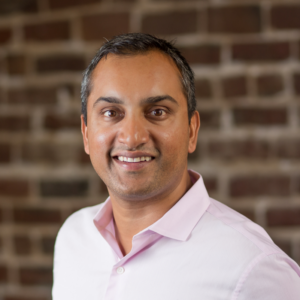
Sumant Sridharan
Sumant Sridharan. Sumant is the COO of HomeLight, a company awarded for being in the top-10 fastest growing companies in the San Fran Bay area. He has over 20 years of experience leading companies through strong periods of growth, including three acquisitions and one IPO, having raised over $200M. Sumant is considered a subject-matter expert in tech ventures. He has built and led product management and marketing teams for over 15 years. Prior to HomeLight, Sumant was the President of CafePress Inc, CEO & founder of Advantage Direct, and VP of Marketing & GM Home Services.
Sumant is a credit to the Repeatability community and will undoubtedly bring with him a lot of insight.

Eric Anderson
Eric is a Partner at Scale Venture Partners. His investment focus is on cloud infrastructure and security. Eric’s deep knowledge of cloud projects comes from his time working for Google Cloud, where he was a Product Manager in the Data Analytics and Machine Learning team, and also from his tenure at Amazon Web, where he led their Web Services Product teams. Eric is very hands on with Scale’s portfolio companies. He is a Board Member at Datastax and Upsolver, and a Board observer at Matillion, BigID, Expel, Honeycomb, and AppOmni.
Eric’s profound understanding of cloud and data related technology investments will provide Repeatability with a cutting edge.

Kiran Hebbar
Kiran has extensive experience investing in and operating SaaS companies. He has invested in more than 12 early-stage technology companies as a General Partner at Valhalla Partners over a 10-year period. Kieran is highly skilled in developing sales and marketing strategies for SaaS businesses and advises his teams as either a board member, CFO or COO. Kiran’s investment portfolio has included mParticle, Geomagic, Fishbowl Marketing, Vubiquity, PlaceIQ, Adaptly, Vistar Media, Zonoff, Verical, KZO Innovations, Custora, Truebridge Capital, and NextGenVenture Partners. Kiran is currently the CFO at Alloy, a SaaS company that aids banks and fintech companies to make quick compliance, credit, and fraud-related risk decisions in minimal time.
Kiran’s experience working both as an investor and a strategic leader in the tech space will provide Repeatability with a 360 view of best practices.
Our free virtual event takes place on November 9th & 10th. You can register for the event here. Remember to invite your team and portfolio companies.



